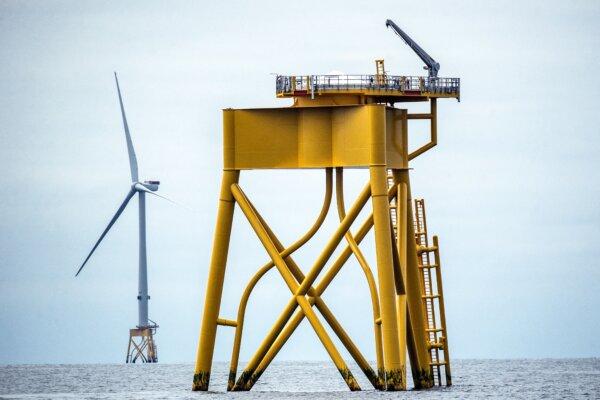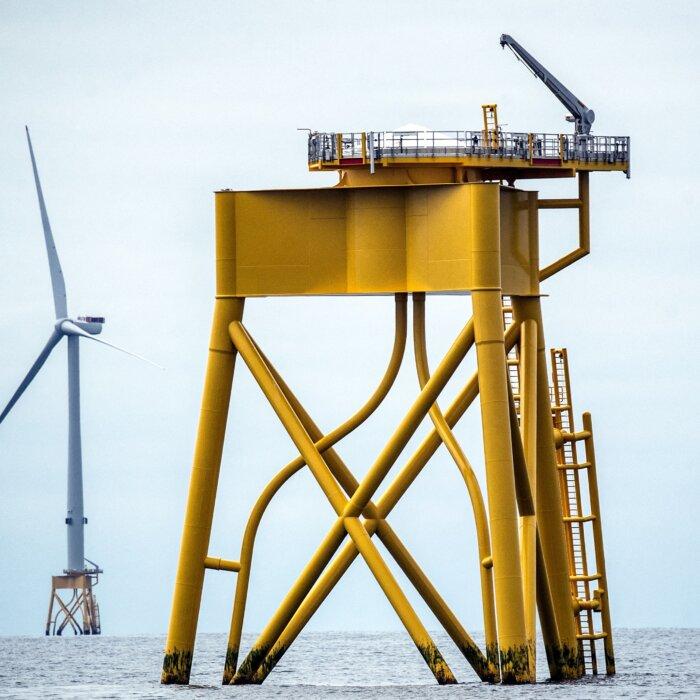Climate change should be made a compulsory school subject so children can “influence” their parents and learn about “global concerns,” an environmentalist panel has recommended.
Members of Scotland’s Climate Change People’s Panel have unanimously backed the recommendation that the Scottish Government should make climate change studies mandatory from primary to high school and that children should be involved in the development of the subject.
The report published on Thursday said the measures were so that “all children are made aware/have the opportunity to engage and talk to/influence their parents and help change within the home and at a local level.”
It added that the move would ensure all pupils gain an understanding of climate change, the production of energy, “global concerns,” and “green job opportunities.”
The recommendation is one of 18 outlined in the report, including that the Scottish Government should to do more to engage Scots on net zero.
Another unanimous recommendation was for all local authorities to be subject to a “legal obligation” to “co-create local climate policy.” Support for funding could come from the Scottish Government, the committee said.
‘Consistent Positive Media Campaign’
There also needs to be a “consistent positive media campaign” which would share local and national “success stories” of tackling climate change. This would aim to demonstrate that “changes in lifestyle are apparent and easy to implement.”Also, “because some people are worried and anxious about climate change,” the media campaigns would “alleviate anxiety” by providing “evidence of solutions and that they are part of the solution.”
Businesses need to be “held accountable” for meeting net zero targets, so “there needs to be Government regulation of business around climate targets and not subsidising companies with negative impact.”
The panel of 23 randomly-selected members of the public was established to support Holyrood’s Net Zero, Energy, and Transport Committee. It aims to discuss the government’s net zero targets and how the Scottish Government is engaging the public on climate change. The recommendations will feed into the committee’s scrutiny of the Climate Change (Scotland) Act 2009.
Conservative MSP Edward Mountain, convener of the net zero committee, said: “This report identifies the need for the Scottish Government to lead from the front to bring governments, business and the public together in a mutual understanding of the shared challenge we all face and the actions that need to be taken to effect change.”
“Collaboration on all levels of society will be essential to help drive action forward,” Mr. Mountain said, adding, “We look forward to taking evidence from the panellists during next week’s committee meeting and exploring their findings further with them.”
In response to the recommendations, Scotland’s Net Zero Secretary Mairi McAllan told The Herald: “It is vital that people understand the nature and scale of the climate emergency, know how they can take action and help shape decisions, which is why the Scottish Government continues to put public engagement at the centre of our climate action.
“I would like to thank the People’s Panel for their collective statement and we will now carefully consider the recommendations.”

Scotland’s 2030 Net Zero Pledge No Longer Credible
Last month, the Climate Change Committee (CCC) said that the Scottish Government was failing to achieve its “ambitious” net zero goals.The independent advisory body said that in order to meet the target of reducing carbon emissions by 75 percent by 2030, reductions in most sectors would have to increase by a factor of nine between now and 2030.
“The acceleration required in emissions reduction to meet the 2030 target is now beyond what is credible,” the report to the Scottish Parliament said.
The report also noted that “only three of the 14 key recommendations from the CCC’s 2022 Scottish Progress Report scored ‘good progress’. Two scored ‘moderate progress’, seven scored ‘some but insufficient progress’, and two made ‘no progress’ at all.”
Net Zero to Cost Scotland £1.1 Billion a Year Until 2050
The report from the CCC followed on from the Scottish Fiscal Commission (SFC) estimating that reaching net zero could cost Scotland £1.1 billion a year until 2050.The report, published on March 14, said that would equal around 18 percent of the Scottish Government’s capital budget.
The SFC also labelled the 2030 target a “fiscal risk,” saying, “Overall, this presents a substantial pressure for public spending and could be difficult to manage within the Scottish Budget.”
“The Climate Change Committee have described the Scottish Parliament’s 2030 emissions reduction target as ‘extremely challenging.’ We think it could be difficult for the Scottish Government to fund meeting it,” the SFC warned.







